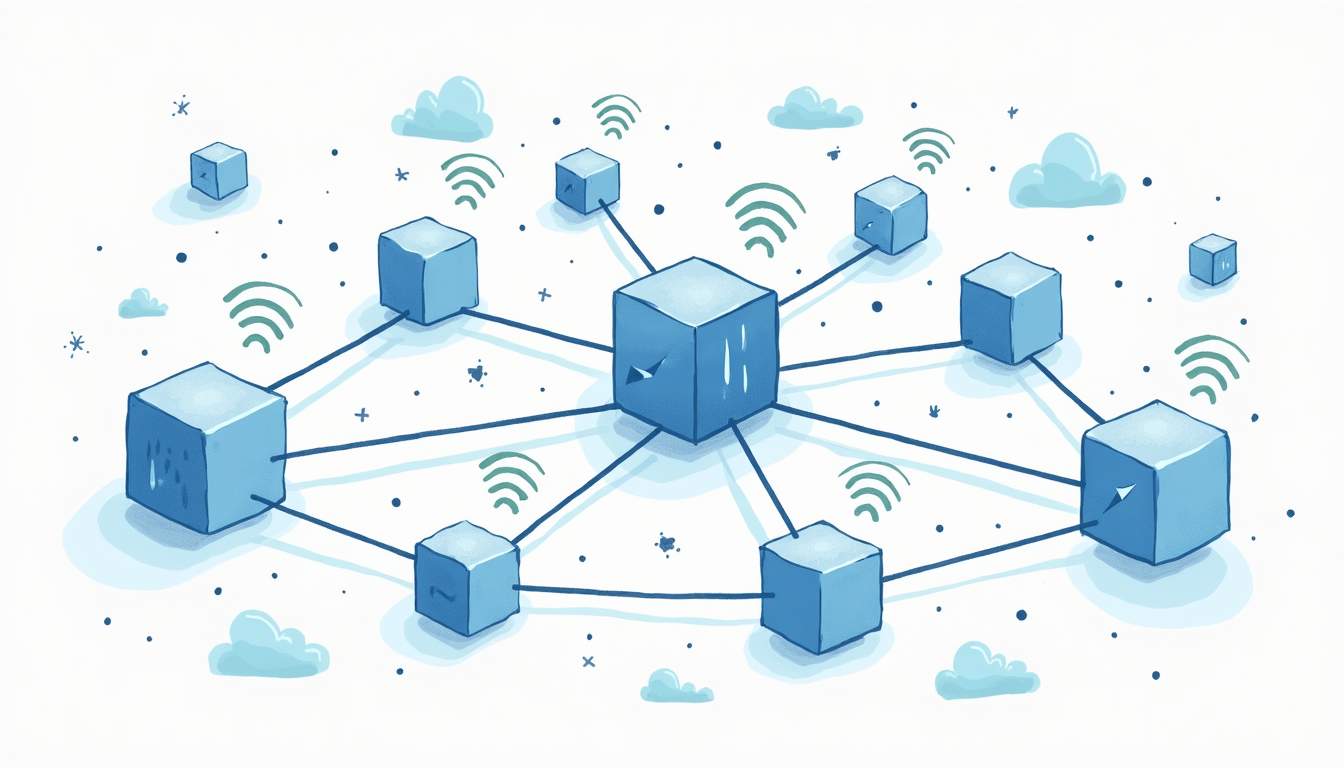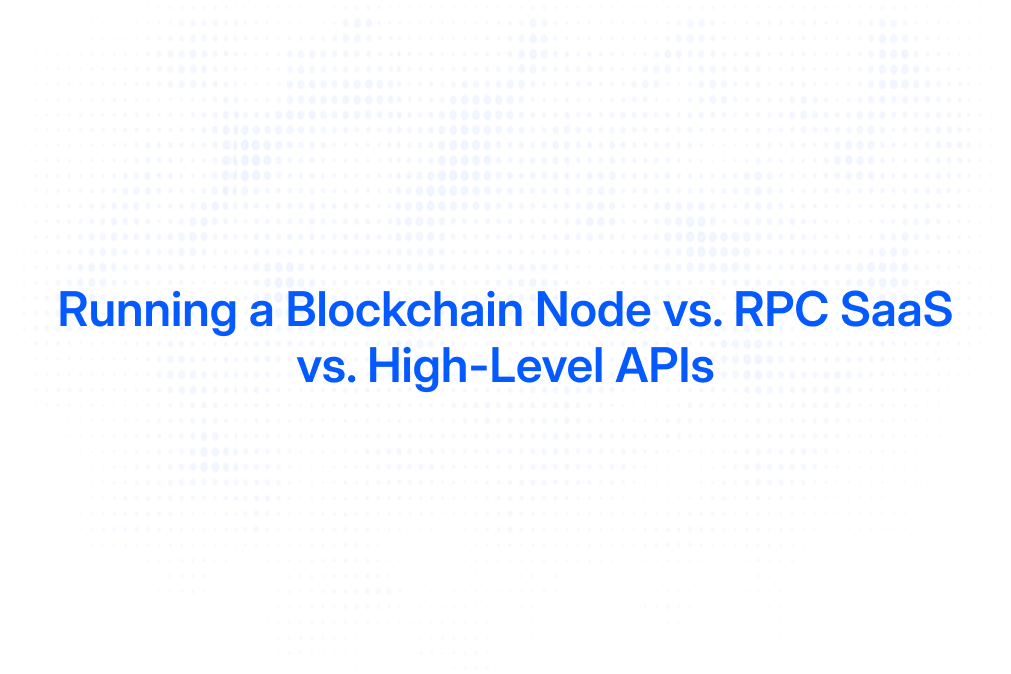BNB Chain RPC Reliability Challenges (and Fixes)
The BNB Chain has rapidly become one of the most popular blockchain platforms, powering a vast ecosystem of decentralized applications (dApps) and services. However, as with many blockchain networks, the reliability of Remote Procedure Call (RPC) endpoints remains a critical factor for developers and users alike. RPC endpoints serve as the communication bridge between blockchain nodes and applications, enabling data queries and transaction submissions. When these endpoints experience downtime or latency issues, the entire user experience can be severely impacted.
This article explores the primary reliability challenges faced by BNB Chain RPC providers and offers practical solutions to overcome these hurdles. By understanding these issues and implementing modern RPC routing strategies, developers can significantly enhance the resilience and performance of their BNB Chain applications.
Understanding RPC Reliability Challenges on BNB Chain
What Causes RPC Downtime and Latency?
RPC endpoints on BNB Chain can suffer from several issues that degrade reliability. Common causes include server overload due to high traffic, network congestion, and infrastructure failures. Since many dApps rely on a single RPC provider, any outage or slowdown directly translates into failed transactions or delayed data retrieval, frustrating users and potentially causing financial loss.
Additionally, the decentralized nature of blockchain means that data must be fetched from distributed nodes, which can introduce latency if the RPC provider is not optimized for multi-region access or load balancing. This is particularly problematic during periods of network congestion or high demand, such as during token launches or NFT drops. During these peak times, the sheer volume of requests can overwhelm even the most robust systems, leading to slower response times and, in some cases, complete service interruptions. Developers must also consider that not all nodes are created equal; some may be less reliable or slower than others, further complicating the RPC landscape.
The Hidden Costs of RPC Failures
Beyond user experience, RPC downtime carries significant economic implications. For example, failed transactions can lead to increased gas fees as users retry operations, and dApp developers may face reputational damage and user attrition. Furthermore, prolonged outages can disrupt automated trading bots, DeFi protocols, and other critical services reliant on real-time blockchain data. The ripple effects of these failures can extend to the broader ecosystem, affecting liquidity and market stability as traders and investors lose confidence in the reliability of the platform.
Studies show that even a few minutes of RPC downtime can result in thousands of dollars in lost transaction value and operational costs. Therefore, ensuring high availability and low latency of RPC endpoints is not just a technical necessity but a business imperative. Moreover, the financial ramifications can be compounded by the competitive nature of the blockchain space; users are likely to migrate to alternative platforms that offer more reliable services. This shift can lead to a loss of market share for dApps that fail to prioritize their RPC infrastructure, making it crucial for developers to invest in robust solutions that can withstand the pressures of high demand and maintain seamless operation.
Key Solutions to Improve BNB Chain RPC Reliability
Implementing RPC Auto-Routing for Failover and Load Balancing
One of the most effective ways to mitigate RPC downtime is through RPC auto-routing. This approach involves dynamically directing RPC requests across multiple providers based on availability, latency, and load. By leveraging multiple RPC endpoints, applications can automatically failover to a healthy provider if one goes down, ensuring uninterrupted service.
RPC auto-routing also enables load balancing, distributing traffic evenly to prevent any single provider from becoming a bottleneck. This redundancy significantly reduces the risk of outages and performance degradation. For BNB Chain developers, adopting RPC auto-routing means their dApps can remain responsive even during peak network activity. Furthermore, this method can enhance user trust and satisfaction, as users are less likely to experience disruptions or slow response times. As the demand for decentralized applications continues to grow, ensuring a seamless user experience through reliable RPC connections becomes increasingly crucial.
Multi-Provider RPC Aggregation: The Future of Web3 Infrastructure
Relying on a single RPC provider introduces a single point of failure. Multi-provider RPC aggregation combines endpoints from several providers into one unified interface. This strategy not only enhances reliability but also optimizes cost and latency by selecting the best-performing provider for each request.
For example, a multi-provider RPC router can route requests to geographically closer nodes, reducing latency and improving user experience. It also offers cost savings by balancing requests across providers with different pricing models. As the BNB Chain ecosystem grows, multi-provider RPC aggregation is becoming the standard for scalable and resilient blockchain infrastructure. Additionally, this approach allows developers to experiment with different providers to find the optimal mix that meets their specific needs, fostering innovation and adaptability in the rapidly evolving Web3 landscape.
Leveraging Multi-Cloud and Multi-Region RPC Routing
Another advanced technique to boost RPC reliability is multi-cloud and multi-region routing. By deploying RPC endpoints across multiple cloud providers and geographic regions, developers can achieve greater redundancy and lower latency.
Multi-cloud solutions protect against provider-specific outages, while multi-region routing ensures that users connect to the nearest data center, minimizing network delays. Google’s Multi-Cloud Proxy (MCP) technology, for instance, exemplifies how multi-cloud RPC routing can scale blockchain APIs efficiently and reliably. Moreover, this strategy can enhance disaster recovery capabilities, allowing applications to maintain functionality even in the face of significant disruptions, such as natural disasters or regional internet outages. As businesses increasingly prioritize resilience, multi-cloud and multi-region RPC routing will play a pivotal role in safeguarding the availability of decentralized applications on the BNB Chain.
Practical Steps for BNB Chain Developers
How to Integrate Multiple RPC Providers
Integrating multiple RPC providers into a single endpoint requires careful orchestration. Developers should select providers based on reliability, geographic coverage, and cost. Popular RPC providers for BNB Chain include public nodes, commercial services, and decentralized RPC networks.
Once providers are chosen, an RPC router or aggregator can be configured to monitor endpoint health and route requests accordingly. This setup often involves health checks, latency measurements, and fallback mechanisms to ensure seamless failover.
Monitoring and Optimizing RPC Performance
Continuous monitoring is essential to maintain RPC reliability. Developers should track metrics such as response time, error rates, and throughput. Tools that provide real-time analytics can alert teams to emerging issues before they impact users.
Optimization may involve scaling infrastructure, adjusting routing policies, or switching providers as needed. By proactively managing RPC endpoints, BNB Chain applications can maintain high uptime and deliver a smooth user experience.
Conclusion: Building Resilient BNB Chain Applications with Reliable RPC
RPC reliability is a cornerstone of successful BNB Chain applications. Downtime and latency issues can undermine user trust and lead to financial losses. However, by embracing modern RPC routing techniques such as auto-routing, multi-provider aggregation, and multi-cloud deployment, developers can significantly enhance the robustness of their blockchain infrastructure.
As the BNB Chain ecosystem continues to expand, investing in reliable RPC solutions will be critical to supporting scalable, high-performance dApps. With the right strategies, it is possible to minimize downtime, reduce costs, and deliver exceptional user experiences on the BNB Chain.
Ready to elevate your BNB Chain applications and overcome RPC reliability challenges? Look no further than Uniblock, the Web3 infrastructure orchestration platform trusted by over 2,000 developers. With our single API endpoint, you can effortlessly auto-route RPC, API, and webhook traffic across multiple providers, ensuring maximum uptime, minimal latency, and cost-effective scaling. Say goodbye to vendor lock-in and manual management hassles. Start building with Uniblock today and join the ranks of developers who are scaling their dApps, tooling, and analytics with confidence on 100+ chains.
.svg)


.png)



